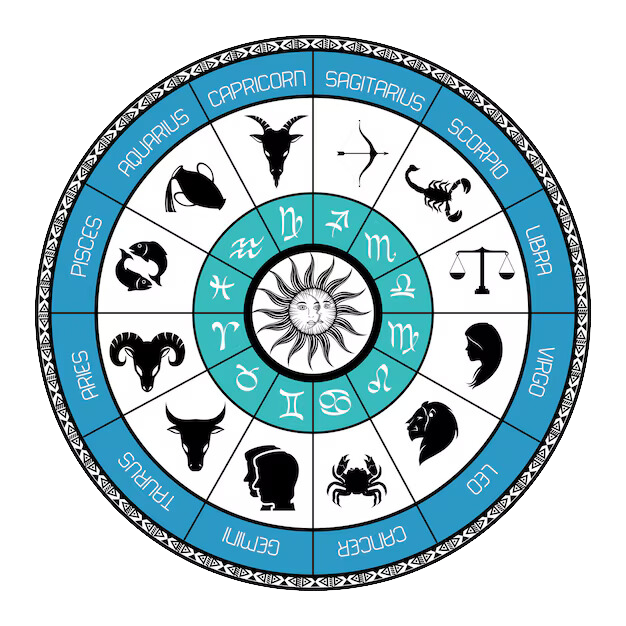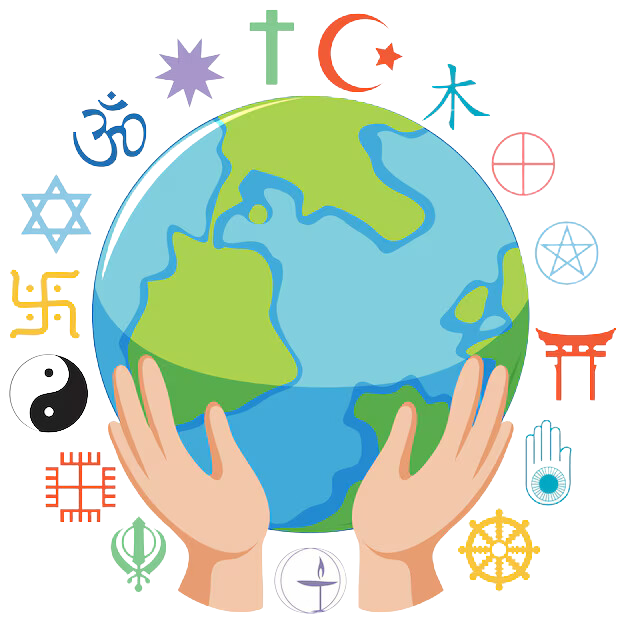Spirituality in the Modern Age
- jessicaaqian
- Nov 6, 2024
- 7 min read
Relevance of Spirituality
Spirituality in Pop Culture
Why are spiritual practices such as astrology, tarot reading, and crystal healing growing in popularity?
Once regarded as part of the occult, alternative spiritual beliefs and practices such as astrology, tarot cards, crystal healing, and aura reading are now widely utilised as self-reflection and development tools.

Such practices are typically considered part of the New Age movement of the 1970s and 1980s, which emphasises discovering and customising your approach to self improvement and spiritual fulfilment over deriving spiritually solely from religion.
A study conducted by Pew Research Center found that 6 in 10 American adults subscribe to at least one New Age belief, such as psychics, astrology, or spiritual energy housed in physical objects.
Spiritual practices have grown in popularity in the past decade and now embraced by people worldwide.
This growing acceptance could be partly attributed to an increasing presence in social media platforms and technology.
From daily horoscope updates from Twitter accounts and tarot readers giving free readings on TikTok, to mobile applications such as Co-Star and Astrology Zone, technology has made it easier for consumers to access and follow these alternative spiritual practices and customs.
Interest in these spiritual practices today could have further increased due to the impact of the ongoing COVID-19 global pandemic.
Searches of the keywords ‘birth chart’ and ‘astrology’ have hit five-year peaks in 2020 on Google Trends, and spiritual professionals like astrologers and tarot readers have reported increased demand for their services and products during the height of the COVID-19 outbreak.
Why Do We Believe and Follow such Spiritual Practices?

Belief in New Age spiritual practices can be explained via the Barnum effect, a psychological phenomenon where individuals strongly agree with or relate to general statements that apply to most people, leading them to believe that those statement were personalised for them.
In a study by Bernie Silverman (1971), participants provided with unlabelled star signs typically did not pick the horoscope for their own sign when asked to choose which horoscope they felt best described them. When these participants are given labelled horoscopes, they displayed a significant tendency to choose the horoscope of their own star sign over others. When presented with vague descriptions (such as “You are intelligent”, or “You are a bright thinker”) ascribed to one’s assigned horoscope, tarot card spread, or fortune; an individual can be led to conclude that those descriptions are accurate by drawing connections to their past experiences in order to bridge any actual discrepancies with their self-perception.
Mental Health Implications of Alternative Spiritual Practices and Beliefs
1. Alleviates stress during uncertainty
Spiritual practices such as astrology can help people cope with negative life events and uncertain situations. Lillqvist and Linderman (1998) showed that people undergoing divorce or unemployment were more likely to believe in astrology; this implies that people subscribe to these spiritual practices as a coping mechanism, and for guidance and support where traditional institutions are lacking.
2. A sense of control
These spiritual practices can provide people with an illusory sense of control over their lives, empowering them to make decisions amid uncertainty. Individuals who lean towards an external locus of control (where they tend to attribute their successes and failures to external factors) may be more supportive of such spiritual beliefs.
3. Aid in self-discovery and self-understanding
Practising astrology and tarot cards can subconsciously encourage one to engage in self- reflection, evaluate their attributes, and identify areas for improvement.
4. Spiritual bypassing
Spiritual bypassing is a tendency where a person adopts spiritual ideas and practices to avoid resolving or directly addressing their psychological trauma or emotional issues. A person looking for quick validation and resolutions can lean towards such a tendency. While one’s healing process can include spiritual practices and beliefs, they should not fully replace support from mental health professionals and other evidence-based treatments. Allowing these spiritual practices to dictate your behaviours and decisions may prevent you from adequately processing trauma and other negative experiences.
Science vs Modernity
However, science and religion can often overlap in many ways, and even complement each other.
Science and Modernity
Many people see science and modernity as conflicting with and spirituality because science relies on evidence and reason, while religion is based on faith and belief. This conflict is often seen as irreconcilable, with the debate between evolution and creationism being one of the biggest points of contention, especially for those of Abrahamic faiths.
Science and Religion

The five major religions (Christianity, Islam, Hinduism, Buddhism, and Judaism) have produced scholars that have contributed to our understanding of fields such as medicine, philosophy, math, geography, and physics. Many of these discoveries were made while studying religious rituals. Some religious scholars believe that science and religion are not conflicting but in harmony.
Many prominent scientists were also religious and were motivated to discover the nature of the world around them through their spirituality.
Carl Sagan believe that feeling both awe and humility when appreciating the intricacies of life can be considered a spiritual experience.; physicist William H. Bragg also argued that spirituality can provide purpose in one’s pursuits, including science.
Francis Bacon, Isaac Newton, and Robert Boyle, who made significant contributions to philosophy, physics, and chemistry all approached their work with theological motivations – they believed that their senses and minds were gifts from God that they could use to expand knowledge about nature (Source)
A sense of wonder and curiosity about the world, which can be considered spiritual experiences, can motivate scientists to determine empirical knowledge about their surroundings. Spirituality can guide scientists to avoid using technology for unethical purposes.
Reflecting on your own Spirituality
You do not need to be religious in order to be spiritual. Spirituality can mean connecting to something beyond ourselves, like the meaning or purpose of life.
Experiencing spirituality can include feeling positive emotions such as hope, gratitude, compassion, and love; emotions such as these are considered spiritual experiences as well, regardless of our religiosity
Science and spirituality can come together.
For example, psychological treatments can promote motional and mental health by facilitating spiritual experiences.
Connection and Communication can help bridge the gap between Science and Spirituality
When discussing the differences between these two topics, it's crucial to use empathy, respect, cultural awareness, and humility in our language.
Science and spirituality may conflict because they use different languages and have vastly different perspectives on how they view the world; patience and sensitivity is required in order to understand each perceptive
You can be both scientific and spiritual, and one doesn't cancel out the other. You don't have to try to fully reconcile science and spirituality; it depends on what's important to you at the moment.
People have different opinions on whether science and spirituality can work together. Some may think that their spirituality can include scientific elements, while others may not. It's important to respect everyone's views and not force our own beliefs on others, regardless of our stance on the matter.
Mindfulness and meditation are methods rooted in spirituality that can also be considered secular, showcasing how science and spirituality can complement each other.
Does Technology Help or Harm Spiritual Wellness?
Defining Spirital Wellness
Spirituality is multi-faceted and transcends religious and cultural barriers (Delgago, 2005). It is characterised by faith, a search for meaning and purpose in life, a sense of connection with others, and a transcendence of self, resulting in a sense of inner peace and well-being. A strong spiritual connection may improve one’s sense of satisfaction with life or enable accommodation to disability.
Help or Harm?
Technology can be a platform for us to engage with spiritual practices, and in turn enhance our spiritual wellness. When the COVID-19 pandemic was at its height in Singapore and worshippers of organised religions were not able to assemble in person, technology provided these worshippers a platform to continue congregating and listening to religious messages on a regular basis.
Churches, temples, and mosques utilised live streaming and Zoom meetings to share their weekly sermons or prayer sessions, allowing worshippers to stay connected to their faith. Social media platforms such as Facebook and Whatsapp were also used by Taoist organisations to share religious messages with their followers. These religious and faith-based messages – which were transmitted through technological platforms – functioned as a way to encourage hope in worshippers during the COVID pandemic (i.e. finding meaning and purpose in difficult times), and also to re-focus them towards serving their community (i.e. self-transcendence, contributing to others beyond oneself, etc.). Some of these online religious platforms have remained even as changing COVID regulations allowed the return of in-person religious assemblies, providing worshippers an additional avenue to stay spiritually connected with their faith and maintain their spiritual wellness.
In terms of non religious spirituality, mobile apps providing guided mindfulness meditation exercise have been found to be effective in improving mental health when used regularly (Flett et al., 2019), helping users towards a sense of inner peace and well-being.
Technology also allows us to connect with a larger community and feel a sense of belonging. Having a sense of connection with others can help to increase our spiritual well being. Social networking platforms like Facebook have been found to be an outlet for people to develop and maintain their social connectedness in the online environment, which in turn was associated with lower depression and anxiety scores as well as higher reported life satisfaction (Grieve et al., 2013). This may be especially important in cases where people are unable to meet physically due to clashing schedules or commitments in their personal lives – social media and messaging apps can overcome these physical and temporal boundaries, allowing us to stay connected with each other over the internet.
Conversely, technology can also serve as a distraction from engaging in these spiritual practices. Silence and solitude is conductive for staying spiritually connected, and in the inflow of notifications and emails from our mobile phones can be disruptive to that. The instant gratification form social media and online shopping platforms, where targeted advertising may further glue us to our digital platforms, can lead to us neglecting practices that can improve our spiritual well-being (Cyzewski, 2020).
Overall, technology is a vehicle – it can be utilised to help us stay spiritually connected with our individual faiths, stay socially connected with a larger community, and find a sense of inner peace and wellness; however, it can also be a distraction that pulls us away from engaging in spiritual practices that enhance our spiritual well-being. Whether or not technology helps or harms our spiritual wellness ultimately comes down to how we make use of it.









Comments